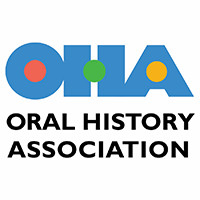New federal government protocols that better define the Policy for the Protection of Human Subjects have been announced in an effort to make more effective the promulgated regulations known as the Common Rule. According to the announcement, “this final rule is intended to better protect human subjects involved in research, while facilitating valuable research and reducing burden, delay, and ambiguity for investigators. These revisions are an effort to modernize, simplify, and enhance the current system of oversight.”
The most critical component of the new protocols for oral historians explicitly removes oral history and journalism from the regulations. The final rule provides that, “For purposes of this part, the following activities are deemed not to be research: (1) Scholarly and journalistic activities (e.g., oral history, journalism, biography, literary criticism, legal research, and historical scholarship), including the collection and use of information that focus directly on the specific individuals about whom the information is collected.” The new protocols will take effect on January 19, 2018.
The relationship of oral history to human subject research regulations has been widely debated since the 1990s, in particular whether Institutional Review Boards, or IRBs should review oral history. OHA has played a central role in these discussions and for many years has actively advocated for changes. We are grateful to OHA leadership, especially Don Ritchie, Linda Shopes, and Cliff Kuhn for their dedication and hard work on this issue over the years. The review process has generally not been constructive for oral historians, and, in many cases has been quite contentious and burdensome, as principles and practices developed within biomedical and behavioral frameworks have been incompatibly applied to a more humanistic form of inquiry like oral history.
OHA President Doug Boyd, Director of the Louie B. Nunn Center for Oral History at the University of Kentucky Libraries, welcomed the change. “It has been long in coming and is welcomed in the historical community. However, it is now more important than ever that oral historians closely follow best practices with the creation and preservation of oral histories to uphold certain principles, professional and technical standards, and obligations. These include commitments to the narrators, to standards of scholarship for history and related disciplines, ethics, privacy, consent, and the preservation of interviews and related materials for current and future users.”
OHA’s Best Practices are outlined at Principles and Best Practices.

